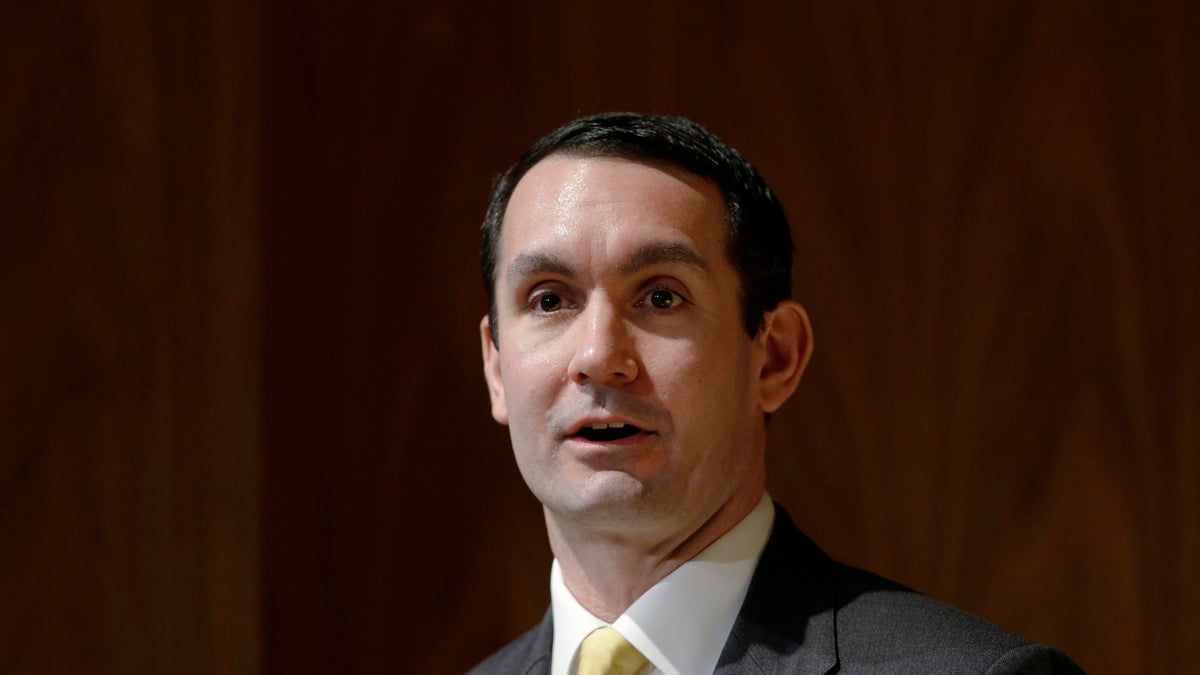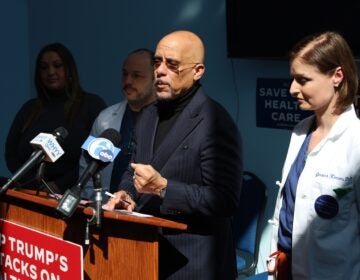Auditor general pushes to reduce gun deaths, focusing on mental health resources
The auditor general's report calls on the state "to expand access to mental health funding, especially in rural areas." It's one of 12 recommendations included in the report.

Pennsylvania Auditor General Eugene DePasquale. (Matt Rourke/AP Photo)
Pennsylvania Auditor General Eugene DePasquale and Democratic state Rep. Mike Schlossberg of Lehigh County are calling for increased resources for mental health services. The two fielded questions during a Facebook town hall Tuesday.
The discussion comes weeks after the auditor general released a report on how to work “within existing laws” to reduce firearm deaths.
After mass shootings, lawmakers often call for increasing mental health services, Schlossberg said. However, those calls are quickly forgotten — and in Pennsylvania, the mainstream of mental health funding hasn’t increased in about 20 years.
“Let’s actually put the funding into these areas to actually do something about this problem, because until we do that, this is just us having a conversation about something that means nothing,” he said.
The auditor general’s report calls on the state “to expand access to mental health funding, especially in rural areas.” It’s one of 12 recommendations included in the report.
More than homicides, though, a conversation about gun deaths is a conversation about suicide risk, Schlossberg said.
“The biggest source of gun-related deaths in Pennsylvania is not homicide, it’s not accidental deaths, it’s suicide,” he said. “In 2017, we lost 1,970 people to suicide in Pennsylvania. More than half of those were the result of firearms deaths.”
DePasquale noted while funding increases can be a hard sell, communities are already paying for untreated mental health issues in other ways.
“Over the past decade, firearm-related injuries cost Pennsylvania taxpayers about $1.5 billion in health care costs,” he said.
Training emergency room doctors to connect people with services is also a crucial step to help people who otherwise may not get help again until they return to the hospital, DePasquale said.
“I think that’s something that can be done, and training the physician about the services that are available in the county, I think, is a critical step.”
He also wants to work with firearms retailers to look for red flags among customers and work with gun owners to lock up their firearms.
Other efforts include community-based violence prevention initiatives and a public awareness campaign to reduce stigma related to mental health challenges.
DePasquale said none of his recommendations would infringe on gun owners’ 2nd Amendment rights.
WHYY is your source for fact-based, in-depth journalism and information. As a nonprofit organization, we rely on financial support from readers like you. Please give today.





